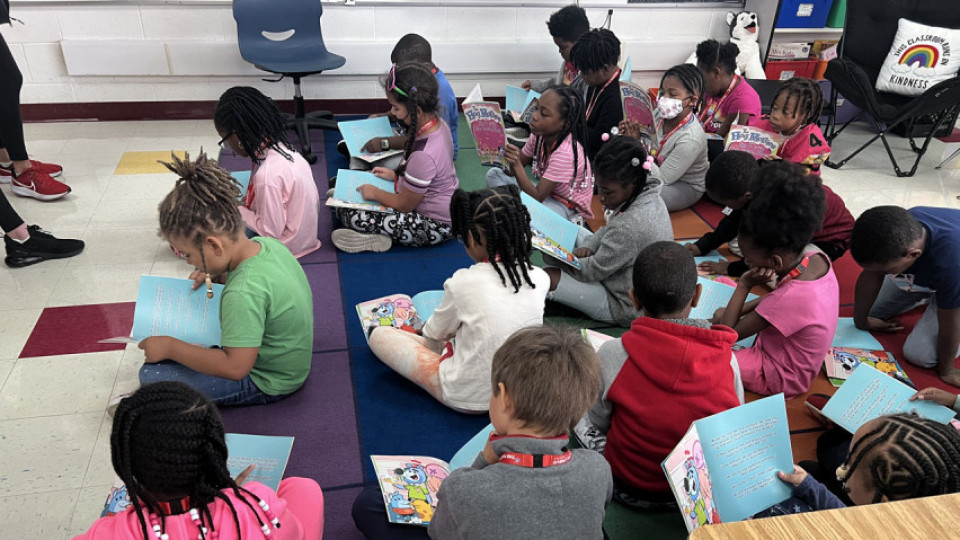
HOW IT WORKS
Student-athlete role models read with the kids, inspire them to work hard in school and provide each child with a new, free book. Through our mission to promote reading, 2nd & 7 has provided 750,000+ books to kids in need since 1999.
COLUMBUS KIDS’ BOOK BANK
The new Columbus Kids’ Book Bank will enhance our mission by allowing us to provide even more books to build the libraries of young students. CKBB will accept new and gently used K-6 books, sort them, and distribute them to those who need them the most. The community will be engaged like never before, with the opportunity to get involved in book drives, fundraisers and volunteer opportunities in the book bank.
OUR WHY
- In a study of nearly 100,000 U.S. school children, access to printed materials was the key variable affecting reading acquisition.
- A child in a bookless home has a 30% probability of completing 9th grade. A child with 100 books in their home has a 90% chance!
- In middle-income neighborhoods the ratio of books per child is 13 to 1, in low-income neighborhoods, the ratio is 1 age-appropriate book for every 300 children. Neuman, Susan B. and David K. Dickinson, ed. Handbook of Early Literacy Research, Volume 2. New York, NY: 2006, p. 31
- The only behavior measure that correlates significantly with reading scores is the number of books in the home. The Literacy Crisis: False Claims, Real Solutions, 1998
- The most successful way to improve the reading achievement of low-income children is to increase their access to print. Newman, Sanford, et all. “American’s Child Care Crisis: A Crime Prevention Tragedy”; Fight Crime: Invest in Kids, 2000.
- Children growing up in homes with at least twenty books get three years more schooling than children from bookless homes, independent of their parents’ education, occupation, and class. Evans, M. D., Kelley, J., Sikora, J., & Treiman, D. J. (2010). Family scholarly culture and educational success: Books and schooling in 27 nations. Research in Social Stratification and Mobility, 28(2), 171-197.
